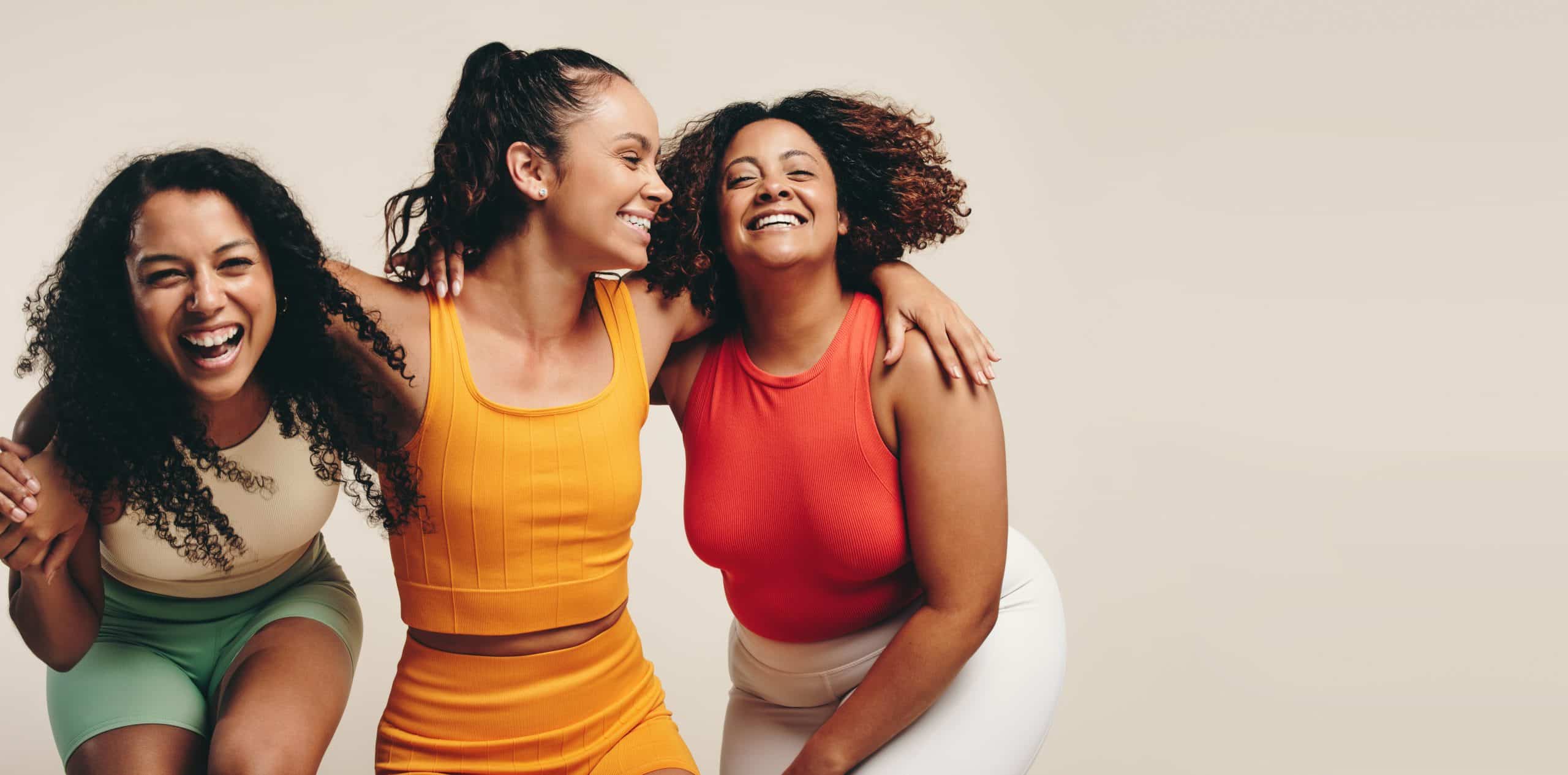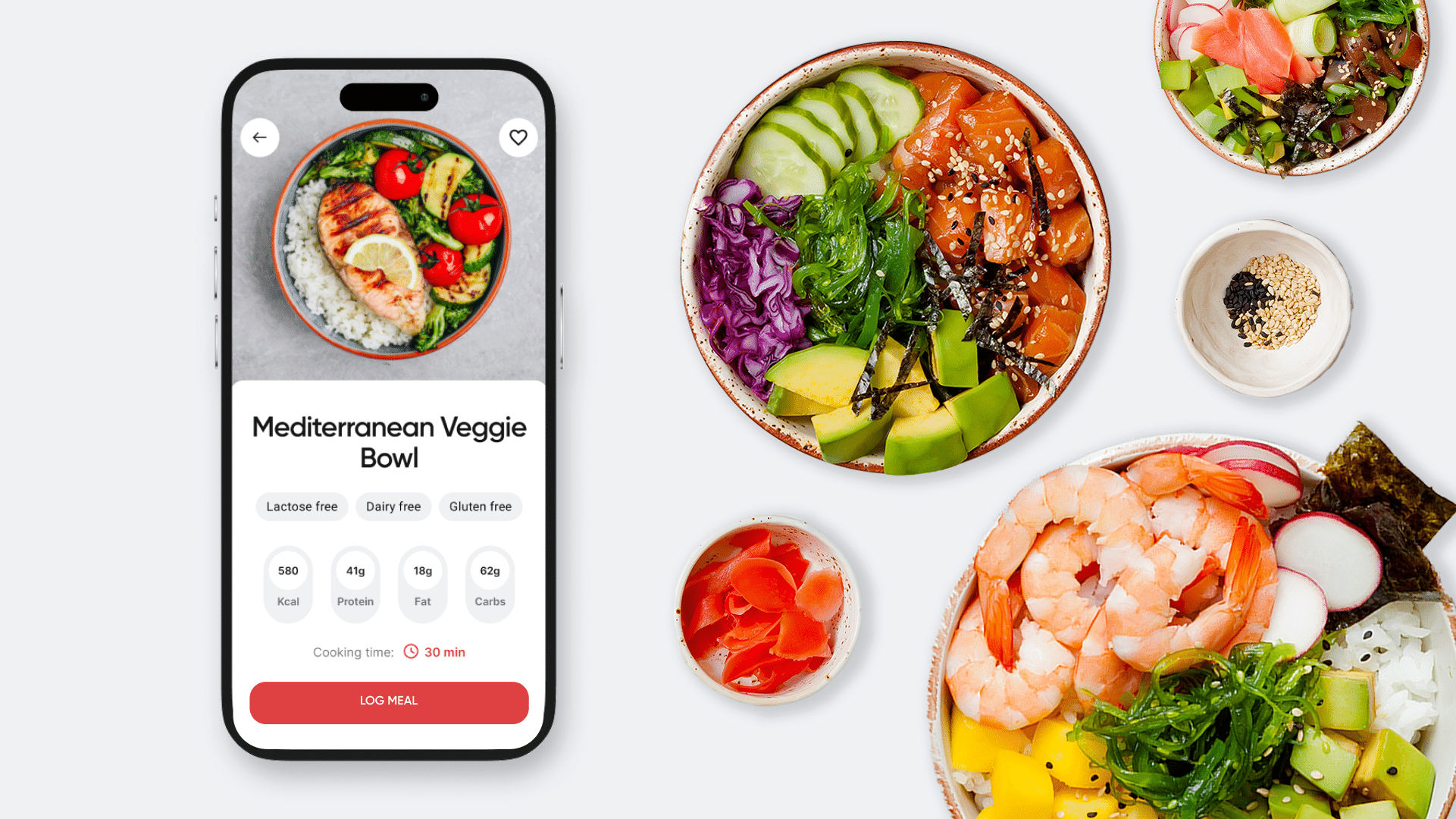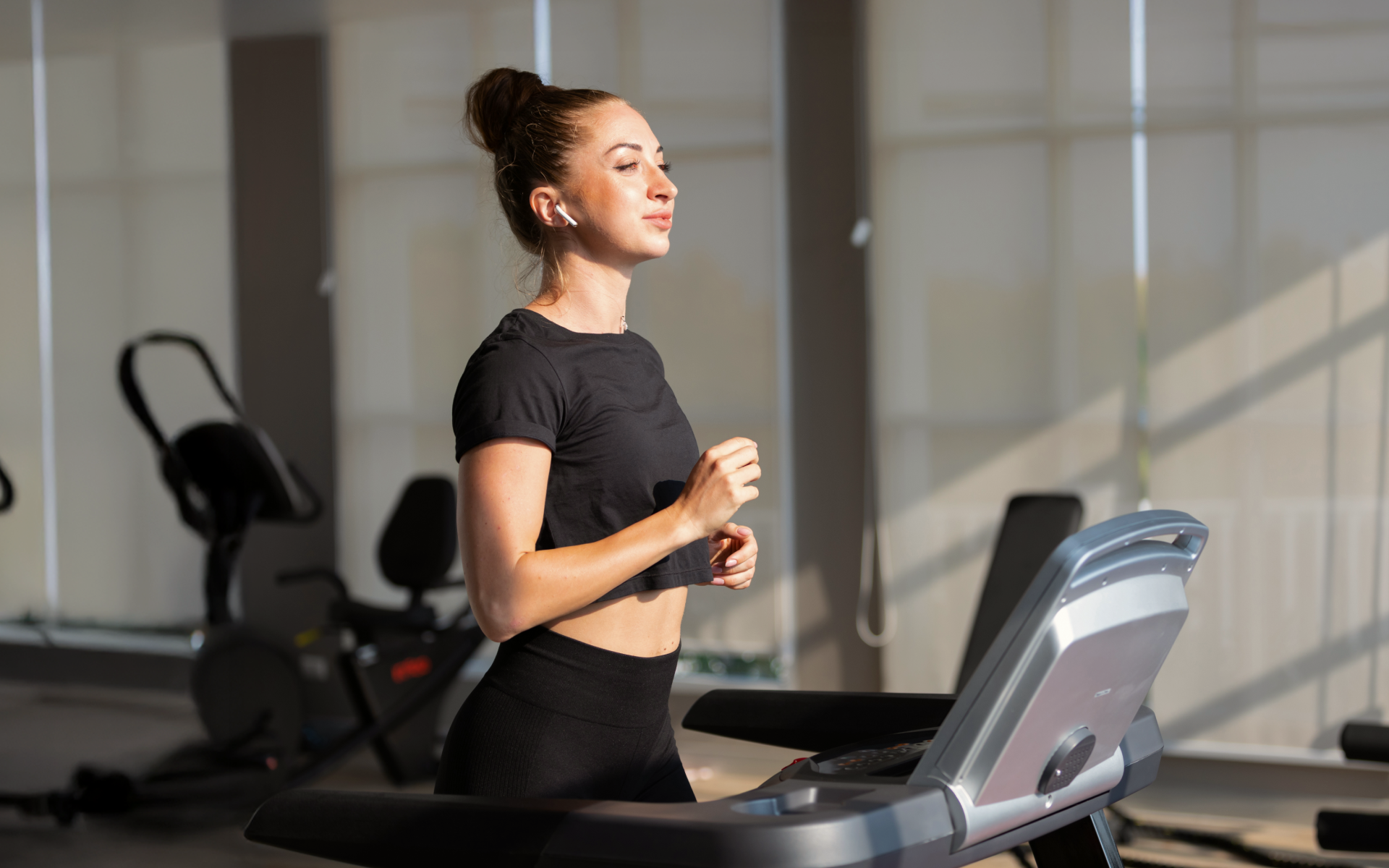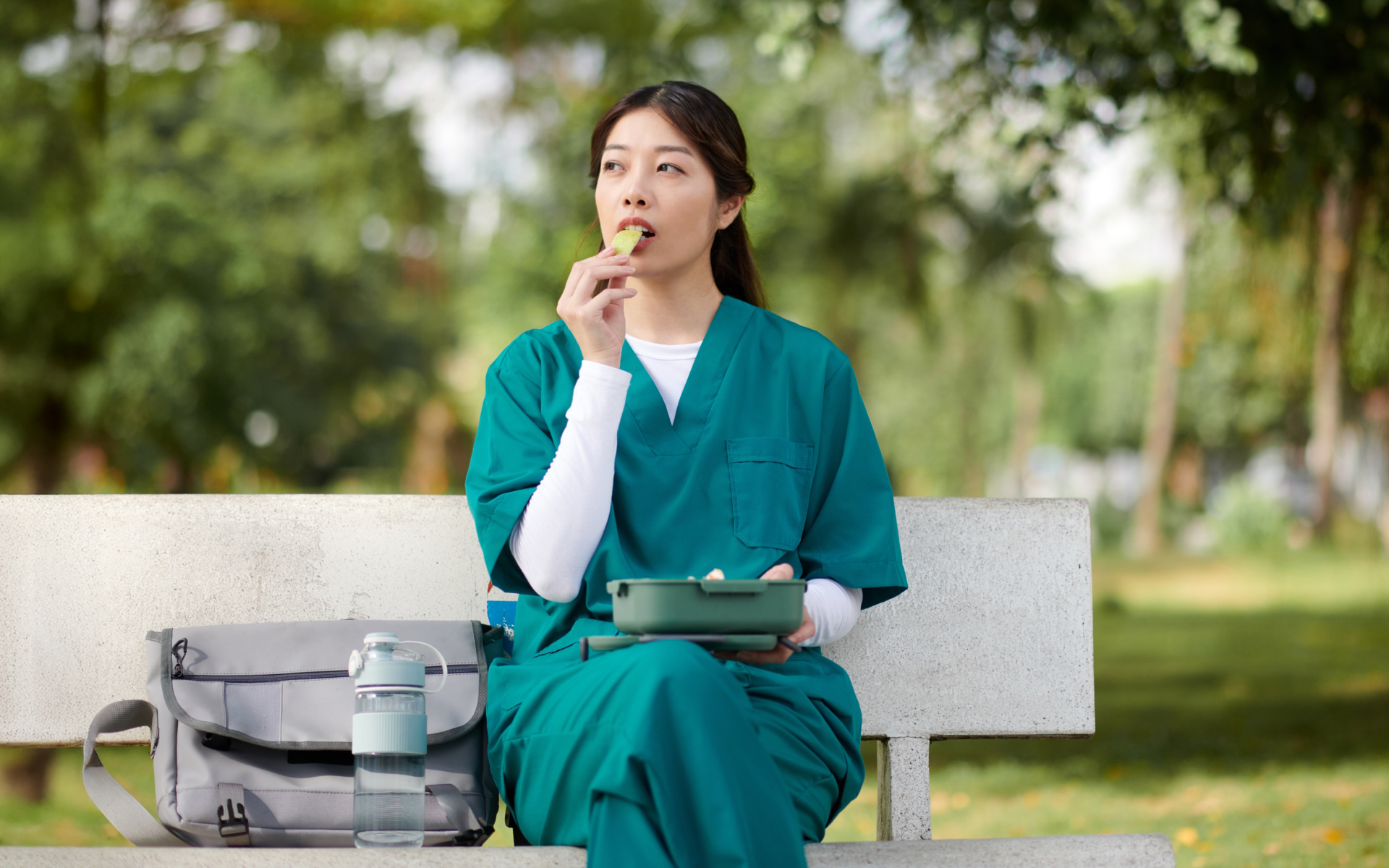If bleeding, mood swings, and cramps weren’t enough, some women on their period also tend to gain unwanted pounds, which can temporarily impede progress for those who are on a weight loss journey. If you’re wondering how you can keep that number on the scale from creeping up when your time of the month rolls around, keep on reading.
Why Do You Gain Weight During Your Period?
This time of the month can be an unpleasant experience for some people due to cramps and blood, and weight gain can make it even more unpleasant. But do you really pack on pounds during your period? Yes, many women suffer from weight swings during their periods. There are different factors that may lead to such a result, including the following :
Hormonal changes
This is one of the most common weight gain reasons, not only among women during their period, but also in post-menopausal women (7) and in men (4). Estrogen – the “female” hormone – peaks right before your period, indirectly causing fluid retention, which makes you feel bloated and may result in a couple more pounds of water weight. Luckily, right after the start of your period, your estrogen levels decrease, and your body returns to the previous state of lesser fluid retention and often again to a lower body weight.
Progesterone is another hormone that adds to your water retention. The level of this hormone peaks in the second half of your cycle. This may also lead to an increase in the size of your breasts. This is also a temporary phenomenon and as your progesterone levels decrease, your body will return to its regular state.
Bloating
Bloating may be caused by water retention and digestive problems. The aforementioned progesterone acts as a smooth muscle relaxant, slowing down spasms in your gastrointestinal tract and resulting in constipation. One of the best ways to fight this, in addition to the opposite problem of diarrhea, is to eat fiber- and probiotic-rich foods.
Food cravings
Periods often make women crave food, and usually not nutrient-dense foods. Some crave salty, nutrient-poor foods, while others are dying for sweet candy. Both salty and sweet foods are conducive to fluid retention and weight gain. Although it may be quite difficult to gain a couple of pounds in only a week, if your goal is weight loss, you should resist any cravings for saltier and sweeter foods while on your period. You can do this by satisfying your hunger with healthy alternatives, such as fruits, lean meats, vegetables, and whole-grain products.
Too much caffeine
Women often feel quite tired during their periods. This causes them to want to boost their energy by drinking more coffee. However, any increased caffeine intake may add to bloating and discomfort. This means gulping down coffee and carbonated drinks isn’t a good idea if you want to reduce bloating. Instead, try to drink more plain water and unsweetened tea. Infused water is also a great option.
Lack of exercise
It’s only natural that when you’re in pain and bleeding, the last thing you want to do is exercise and add some sweat and heat to the mixture. A week off from training can have an adverse effect on your weight and make a calorie surplus and subsequent weight gain more likely. Please note that sweating may help you shed water weight, and endorphins, which are released when you exercise, can reduce cramps.
Reasons why BetterMe is a safe bet: a wide range of calorie-blasting workouts, finger-licking recipes, 24/7 support, challenges that’ll keep you on your best game, and that just scratches the surface! Start using our app and watch the magic happen.
What to Eat During Your Period to Lose Weight
As you can see, it’s almost impossible to prevent period weight swings that occur mainly due to hormonal changes. However, you may minimize the changes on your scale. You can do this by adjusting your current diet. Here’s a list of what to eat on your period and before it begins (9,11,10, 1):
Fiber
Fiber promotes the feeling of fullness, thereby fighting hunger and reducing your cravings for nutrient-poor foods. You can find plenty of this nutrient in beans and legumes, whole grains, fruits, and vegetables. The latter two are especially good for you as they’re packed with essential nutrients and low in calories for the amount of space they take up in your stomach.
Omega-3 fatty acids
Omega-3 fatty acids belong to the broader category of healthy fats. They can reduce inflammation in the body and even reduce menstrual pain due to their anti-inflammatory properties. Omega-3 fatty acids are present in fatty fish, nuts, and seeds. You should aim to consume salmon, sardines, tuna, chia seeds, flaxseeds, walnuts, canola oil, and other foods that contain omega-3 fatty acids at this time.
Calcium
The richest sources of calcium are dairy products. Make sure to have more low-fat dairy products such as Greek yogurt. In addition to being low in calories and filled with various nutrients, leafy greens are also rich in calcium, so it’s beneficial to add them to your menu.
Iron
As you lose blood during a period, your iron levels will drop. Because iron plays a key role in oxygen transport and energy levels, it’s important to maintain iron levels in the body both during and outside of your period. The most iron-rich foods include oysters, beef and beef liver, poultry and chicken liver, spinach, sardines, beans and lentils, dark chocolate, and dried fruits, with a relatively greater portion of the iron in animal-based products able to be used by the body (6).
Antioxidants
Antioxidants can help fight off free radicals and are generally beneficial for you. Some of the richest sources of antioxidants are berries and fruits, particularly citrus fruits.
Read more: Yoga for Period Cramps: Does It Work?
What to Avoid During Your Period to Stay Fit
Besides including the above-listed foods in your diet, you should also try to reduce your consumption of the following (11, 1):
- Salty foods
- Added sugars
- Alcohol
- Cruciferous vegetables
- Baked goods
While alcohol, salty and sugary foods, and baked goods have health drawbacks when consumed in large quantities and can accentuate water retention and weight gain during your period, cruciferous vegetables, which have many health benefits, are also not your best choice in this situation if you suffer from bloating. Broccoli, cauliflower, Brussels sprouts, cabbage, and kale can promote gassiness and add to bloating due to the specific type of carbohydrate that they contain.
What Are Good Period Snacks?
Finding the best period comfort food can make a significant difference in how you feel during your menstrual cycle. Good period snacks should be nutritious, easy to digest, and help alleviate symptoms such as bloating and cramps. Some of the best options include:
- Dark Chocolate: Rich in magnesium, dark chocolate can help relax muscles and reduce cramps.
- Nuts and Seeds: Almonds, walnuts, and flaxseeds are excellent sources of omega-3 fatty acids and protein, which can help reduce inflammation and stabilize mood swings.
- Yogurt: Probiotic-rich yogurt can help maintain gut health and reduce bloating. Adding a little bit of honey can also help soothe cramps.
- Fruits: Bananas, berries, and oranges are some of the best fruits to eat during periods. They’re packed with vitamins and antioxidants that can help boost energy and reduce inflammation.
- Whole Grain Toast with Avocado: This combination provides healthy fats and fiber, which helps keep you full and energized.
However, it’s important to know what not to eat on your period. Avoiding highly processed foods, excessive caffeine, and salty snacks can help minimize bloating and mood swings.
BetterMe app will provide you with a host of fat-frying fitness routines that’ll scare the extra pounds away and turn your body into a masterpiece! Get your life moving in the right direction with BetterMe!
What Is the Best Meal to Eat on Your Period?
The best meal to eat on your period should be well-balanced across food groups, providing essential nutrients to support your body through the menstrual cycle. A good example is a grilled salmon filet with quinoa and steamed vegetables (12, 3). This meal is rich in omega-3 fatty acids from the salmon, which can help reduce inflammation and alleviate cramps. Quinoa provides complex carbohydrates and fiber, which keeps you full and energized, while steamed vegetables offer vitamins and minerals that support overall health.
In addition to your main meals, incorporating small, nutrient-dense snacks throughout the day can help you maintain steady blood sugar levels. This means avoiding foods that are high in sugar and refined carbs as they can cause spikes and crashes in energy levels, consequently worsening period symptoms, along with relatively shorter-lasting fullness. Understanding the worst foods to eat on your period can help you make better dietary choices and feel more comfortable.
What to Drink During Periods
Staying hydrated is incredibly important during your period as it helps manage symptoms such as bloating, cramps, and fatigue. Here are some of the drinks and beverages to consider at this time:
- Water should be your primary beverage as it helps maintain fluid balance and supports overall health.
- Herbal teas such as chamomile, ginger, and peppermint can also be beneficial. Chamomile tea has anti-inflammatory properties that can reduce cramps, ginger tea can help with nausea, and peppermint tea can ease digestive issues (8).
- You can also opt for natural fruit juices, coconut water, and smoothies made with fruits and vegetables.
Avoiding caffeinated and sugary drinks is important as they can lead to dehydration and exacerbate symptoms. Knowing what not to eat on your period extends to beverages too, and being mindful of your choices can significantly impact how you feel.
Is it Harder to Lose Weight on Your Period?
Losing weight during your period can be challenging due to hormonal fluctuations that affect appetite, metabolism, and energy levels. During the menstrual cycle, especially in the luteal phase, the body tends to retain more water and may experience increased cravings for high-calorie comfort foods (2). These factors can make it seem as if you’re not making progress in your weight loss efforts.
While these physiological changes are reversed after your period, the previously mentioned diet tips, along with exercise, can still be beneficial if you have a long-term weight loss goal. Some of the steps that can be helpful during your period include:
- Engaging in light to moderate physical activity such as walking, yoga, or swimming, which are known to help reduce symptoms such as cramps and bloating, while maintaining your fitness routine (13).
- Focusing on a balanced diet that is rich in whole foods
- Avoiding the 5 important things you should avoid during periods, such as excessive sugar, salty snacks, and processed foods.
Read more: Does Walking Help Period Cramps? Reasons You Should Consider Walking for Menstrual Pain Relief
FAQs
Do you burn more calories on your period?
Many women wonder: “Do you lose more weight if you exercise while on your period?” Although research has shown that there are some resting metabolic rate (RMR) variations throughout the menstrual cycle, they differ on an individual basis (5). Generally, you may burn more calories during your period, but there isn’t enough scientific evidence to state that it is a regular occurrence.
How much weight do you gain on your period?
The weight you gain during your period may vary individually. Some women may gain 5 pounds, while others may gain no weight at all. Therefore, there is no “average” amount of weight you gain during your period. All this is dependent on factors such as your diet, intake of sugar, caffeine, and alcohol, and your lifestyle and exercise (9). Don’t forget that some or all of the weight gain may be from water retention, which will resolve itself.
Can I eat eggs on my period?
Yes, you can eat eggs while on your period. Eggs are a good source of protein and iron, which are essential nutrients that can help support your body during menstruation. They are also versatile and can be included in various meals.
Should I eat a lot during my period?
It’s not necessary to eat more than you typically would during your period, but it’s important to focus on balanced, nutrient-dense meals. Eating small, frequent meals can help manage cravings and maintain energy levels without overeating.
Which fruit is best during periods?
Berries, bananas, and oranges are among the most beneficial fruits to eat during periods. They are high in vitamins, minerals, and antioxidants, which can help reduce inflammation and provide energy, and also contain carbohydrate compounds that are relatively less likely to lead to bloating. Understanding the best fruits to eat during periods can help alleviate some menstrual symptoms.
The Bottom Line
Menstruation is a natural process for every woman. However, it can sometimes be very unpleasant. Many of you have probably noticed that you feel hungry before your period. This hunger brings along less nutritious food cravings, which, when satisfied, can be conducive to weight gain during your period. Even if you don’t satisfy your cravings, you can still notice that you look fuller. The reason for this is probably bloating, hormonal changes, or the overconsumption of saltier or sweeter foods. Luckily, there’s something you can do to fight your problem: you should eat foods rich in fiber, calcium, iron, omega-3 fatty acid, and antioxidants, and avoid alcohol, salt and sugar, baked goods, and possibly cruciferous vegetables.
DISCLAIMER:
This article is intended for general informational purposes only and does not serve to address individual circumstances. It is not a substitute for professional advice or help and should not be relied on for making any kind of decision-making. Any action taken as a direct or indirect result of the information in this article is entirely at your own risk and is your sole responsibility.
BetterMe, its content staff, and its medical advisors accept no responsibility for inaccuracies, errors, misstatements, inconsistencies, or omissions and specifically disclaim any liability, loss or risk, personal, professional or otherwise, which may be incurred as a consequence, directly or indirectly, of the use and/or application of any content.
You should always seek the advice of your physician or other qualified health provider with any questions you may have regarding a medical condition or your specific situation. Never disregard professional medical advice or delay seeking it because of BetterMe content. If you suspect or think you may have a medical emergency, call your doctor.
SOURCES:
- 11 Diet Changes That Help You Fight PMS (2020, health.clevelandclinic.org)
- Brain insulin action on peripheral insulin sensitivity in women depends on menstrual cycle phase (2023, nature.com)
- Health Benefits of Fruits and Vegetables (2012, ncbi.nlm,nih.gov)
- How Can a Man Tell if He Has a Hormonal Imbalance? (2021, medicinenet.com)
- Intra-individual variation in resting metabolic rate during the menstrual cycle (2003, pubmed.ncbi.nlm.nih.gov)
- Iron-Rich Foods (2020, webmd.com)
- Menopause weight gain: Stop the middle age spread (2021, mayoclinic.org)
- Review on Herbal Teas (2014, researchgate.net)
- Weight gain during period: What to know (2019, medicalnewstoday.com)
- What Should You Eat During Your Period? (2021, health.clevelandclinic.org)
- What should you eat on your period? (2020, medicalnewstoday.com)
- Nutritional Composition and Bioactive Components in Quinoa (2022, ncbi.nlm.nih.gov)
- Yoga Exercises and Menstrual Cramps (2014, nationwidechildrens.org)










